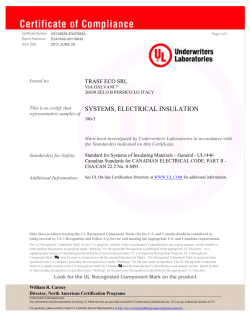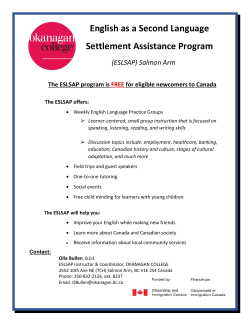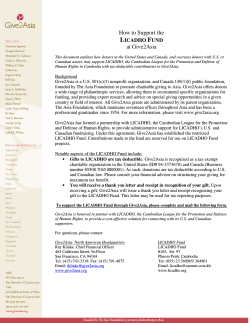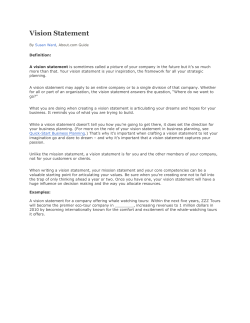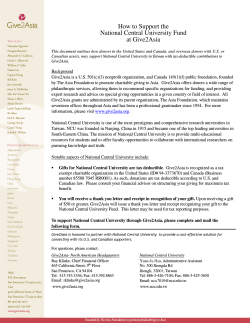
Foundations of Canadian Law Syllabus
Federation of Law Societies of Canada National Committee on Accreditation Syllabus Foundations of Canadian Law (Revised March 2015) Candidates are advised that the syllabus may be updated from time-to-time without prior notice. Candidates are responsible for obtaining the most current syllabus available. World Exchange Plaza 1810 - 45 O'Connor Street Ottawa Ontario Tel: 613.236.1700 Fax: 613.236.7233 www.flsc.ca K1P 1A4 Federation of Law Societies of Canada National Committee on Accreditation Foundations of Canadian Law Objectives of the course: • To provide NCA applicants with an introduction to and an overview of Canada’s legal system and the role of law in Canadian society; • To review various legal theories as they apply to Canadian law; • To introduce the overarching legal framework within which the particular areas of law studied in other courses operate; • To acquaint applicants with the various sources of Canadian Law; • To compare the different branches of Canadian government and to analyze the relationships between and among them; • To provide applicants with an understanding of the Canadian treaty-making process and the implementation of international law into domestic law; • To provide applicants with an understanding of the special relationship Aboriginal Peoples have with the Canadian State, and to enable applicants to critically assess the impact of the Canadian legal system upon Aboriginal and other minority communities; • To provide applicants with an understanding of the nature and function of judicial review and of the basic approaches to statutory interpretation. Evaluation: Evaluation for this course is based on a 100% open book examination. The exam will consist of short answer questions, and/or short essay questions, and/or problem questions. • Short answer questions test candidates’ ability to succinctly and correctly evaluate statements about material listed in the syllabus. • Essay questions test whether candidates’ have critically engaged with the material listed in the syllabus and have started to form their own opinions about the strengths and weaknesses of the arguments, principles, and doctrines discussed in those materials. • Problem questions test candidates’ ability to identify legal issues, accurately state the applicable legal rules, apply those rules to novel situations, and draw conclusions supported by analysis. In other words, problem questions require the exercise of independent judgment grounded in the application of general rules to specific fact situations. 2 Federation of Law Societies of Canada National Committee on Accreditation Core Materials: • Craik, Neil et al, eds. Public Law: Cases, Materials and Commentary, Second Edition (Toronto: Emond Montgomery, 2011). http://www.emp.ca/public-law-cases-materials-and-commentary-2nd-edition.html • Required Canadian case law is indicated following each component and is available free of charge from CanLII: http://www.canlii.ca/ Supplemental Materials: For those interested in reading further on these topics, you may wish to consult the following list of sources available at most Canadian law libraries: Aylward, Carol. Canadian Critical Race Theory: Racism and the Law – publication details at http://fernwoodpublishing.ca/book/canadian-critical-race-theory Gerald Heckman. “The Role of International Human Rights Norms in Administrative Law” (Chapter 14 of Flood and Sossin, eds., Administrative Law in Context, 2nd Edition, Emond Montgomery 2013). Fairlie, John & Philip Sworden, Introduction to Law in Canada (Toronto: Emond Montgomery 2014). Forcese, Craig & Aaron Freeman. The Laws of Government: The Legal Foundations of Canadian Democracy, Second Edition (Toronto: Irwin Law, 2011) - publication details at http://www.irwinlaw.com/ store/product/656/the-laws-of-government--the-legal-foundations-ofcanadian-democracy-second-edition Forsey, Eugene A. How Canadians Govern Themselves, 8th ed. (Ottawa: Library of Parliament, 2012) (online) http://www.parl.gc.ca/About/Parliament/SenatorEugeneForsey/book/preface-e.html Gall, Gerald L. The Canadian Legal System, 5th ed. (Toronto: Carswell, 2004). Hogg, Peter W. Constitutional Law of Canada, 2013 Student Edition (Toronto: Thomson Carswell, 2013). Horner, Jessie J. Canadian Law and the Canadian Legal System (Toronto: Pearson Education Canada, 2007). Justice Canada, “Canada’s System of Justice” www.justice.gc.ca/eng/dept-min/pub/just/index.html 3 Federation of Law Societies of Canada National Committee on Accreditation Components: 1. Basic Theories of Law: • Positivism and Natural law • Feminist Perspectives on Law • Critical Legal Studies • Law and Economics Required Readings: - Craik, Chapter 2, pages 7-39 - Hill v. Church of Scientology of Toronto, [1995] 2 S.C.R. 1130 - The Charter of Whiteness: Twenty-Five Years of Maintaining Racial Injustice in the Canadian Criminal Justice System (2008), 40 S.C.L.R. (2d) 655-686: http://web4.uwindsor.ca/users/t/tanovich/bio.nsf/0/ cbb2df71007aadcb852572300067cb7a/$FILE/TheCharterofWhiteness.pdf - Elaine Craig, "Converging Queer and Feminist Legal Theories: Family Feuds and Family Ties (2010): http://works.bepress.com/cgi/viewcontent.cgi?article=1011&context=elaine_craig - Andrei Marmor, “The Nature of Law” (2011): http://plato.stanford.edu/entries/lawphil-nature/ 2. Sources of Law: • Early Relations with Aboriginal Peoples • Reception of English Common Law • French Civil Law and Bijuralism • Convention • Statute • Treaty Required Readings: - Craik, Chapter 2, pages 39-77; - “Bijuralism and Harmonization: Genesis” available on the Department of Justice website http://www.justice.gc.ca/eng/rp-pr/csj-sjc/harmonization/hfl-hlf/b1-f1/bf1.pdf; - St-Hilaire v. Canada (Attorney General), 2001 FCA 63, [2001] 4 F.C. 289 - Reference re Supreme Court Act, ss. 5 and 6, 2014 SCC 21, [2014] 1 S.C.R. 433 - John Borrows, “Indigenous Legal Traditions” (2005) 19:167 Journal of Law and Policy; online: http://law.wustl.edu/journal/19/p167Borrows.pdf - Baker v. Canada (Minister of Citizenship and Immigration), [1999] 2 S.C.R. 817 (skim headnote for factual context, read paragraphs 69-71, 78-81) - De Guzman v. Canada (Minister of Citizenship and Immigration), 2005 FCA 436 - Manirabona and Crepeau, "Enhancing the Implementation of Human Rights Treaties in Canadian Law" (2012). http://cjhr.ca/wp-content/uploads/2012/05/Manirabona-and-Crepeau-EnhancingImplementation-with-Human-Rights-Treaties.pdf 4 Federation of Law Societies of Canada National Committee on Accreditation 3. Common Law Method: • Precedent and Stare Decisis • History of the Common Law • Equity Required Readings: - Roger Shiner, “Precedent”. http://ivr-enc.info/index.php?title=Precedent (Not required reading. No further changes.) - Debra Parkes, “Precedent Unbound? Contemporary Approaches to Precedent in Canada” (2007) 32:1 Manitoba Law Journal 135-162. http://dunraven.cc.umanitoba.ca/mlj/images/Articles/32v1/parkesprecedent%20unbound.pdf - Gerald Postema, “Classical Common Law Jurisprudence (Part 1)” (2002) http://papers.ssrn.com/sol3/ papers.cfm?abstract_id=462941 - Henry E. Smith, “Why Fiduciary Law is Equitable’, 2013. http://papers.ssrn.com/sol3/papers.cfm? abstract_id=2321315 - Frederick Schauer, “Precedent”, 2011: http://papers.ssrn.com/sol3/papers.cfm?abstract_id=1836384 4. Fundamental Principles of the Canadian Legal System • Rule of Law • Parliamentary Sovereignty and Constitutional Supremacy • Separation of Powers • Judicial Independence Required Readings: - Craik, Chapter 3, pages 79-124 - Reference re Secession of Quebec,[1998] 2 S.C.R. 217, paras. 35-48 & 49-82 - Singh v. Canada (Attorney General), 2000 CanLII 17100 (F.C.A.), paras. 13-44 - Reference re Remuneration of Judges of the Prov. Court of P.E.I.; Ref re Independence and Impartiality of Judges of the Prov. Court of P.E.I., 1997 CanLII 317 (S.C.C.): http://scc.lexum.org/en/ 1997/1997scr3-3/1997scr3-3.html 5. Basic architecture, and workings, of the Canadian legal system: Introduction to the nature and function of judicial review, basic approaches to statutory interpretation, and the Canadian governmental and constitutional system. • The nature and function of judicial review. • The basic approaches to statutory interpretation. • Relationship between branches of government: judicial review; constraints on power of each branch. o Executive Branch: Structure; powers (i.e. delegated legislation); introduction to nature and role of administrative tribunals o Legislative Branch: Structure and operation of Parliament; legislative process; formation of statute versus regulations; ethics and accountability o Judicial Branch: Canadian court system; appointment of judges; judicial independence 5 Federation of Law Societies of Canada National Committee on Accreditation Required Readings: - Craik, chapters 4, 5, 6, 7 and 8. (except Mowat case at pp 500-508; replace with case below) - Canada (Canadian Human Rights Commission) v. Canada Attorney General 2011 S.C.C. 53, (2011) 3 S.C.R. 471 http://www.canlii.org/en/ca/scc/doc/2011/2011scc53/2011scc53.pdf 6. Relationship of Indigenous Peoples to the Canadian state: Selected topics • Aboriginal Rights and Title • Indigenous Self-Government Aspirations • The Modern Treaty Making Process Required Readings: - Section 91(24) of The Constitution Act, 1867 (U.K.), 30 & 31 Victoria, c. 3 - Section 35 of The Constitution Act, 1982, being Schedule B to the Canada Act 1982 (U.K.), 1982, c. 11 - Senwung Luk, “Not So Many Hats: The Crown’s Fiduciary Obligations to Aboriginal Communities since Guerin” (2013) 76 Saskatchewan Law Review http://www.oktlaw.com/wp-content/uploads/ 2013/05/sflFiduciary.pdf - "Highlights from the Report of the Royal Commission on Aboriginal Peoples: People to People, Nation to Nation" (1996) at: www.ainc-inac.gc.ca/ap/pubs/rpt/rpt-eng.asp Required Readings Re: Aboriginal Rights: - R. v. Sparrow, [1990] 1 S.C.R. 1075 - R. v. Van der Peet, [1996] 2 S.C.R. 507 - R. v. Sappier; R. v. Gray, [2006] 2 S.C.R. 686; 2006 SCC 54 - R. v. Powley, 2003 SCC 43 - Rio Tinto Alcan Inc. v. Carrier Sekani Tribal Council, [2010] 2 S.C.R. 650 Required Readings Re: Aboriginal Title: - Delgamuukw v. British Columbia, [1997] 3 S.C.R. 1010 - Tsilhqot’in Nation v. British Columbia, 2014 SCC 44 Required Readings Re: Aboriginal Treaties: - “Why Treaties?” [re: modern day treaties], BC Treaty Commission: http://www.bctreaty.net/files/pdf_documents/why_treaties_update_Aug08.pdf - R. v. Marshall; R. v. Bernard, [2005] 2 S.C.R. 220, 2005 SCC 43, 2005 SCC 43 [2005] 6 Federation of Law Societies of Canada National Committee on Accreditation Canadian Publishers Carswell (Thomson Reuters) Corporate Plaza 2075 Kennedy Road Scarborough, ON M1T 3V4 Email: carswell.customerrelations@thomsonreuters.com URL: http://www.carswell.com/ Tel: 416.862.7690 or 1.888.314.9014 Fax: 416.862.9236 Irwin Law Inc. 14 Duncan St. Toronto, ON M5H 3G8 Tel: (Canada & U.S.) 416.609.3800 or 1.800.387.5164 Email: contact@irwinlaw.com URL: http://www.irwinlaw.com/ Emond Montgomery 60 Shaftesbury Ave. Toronto, ON M4T 1A3 Tel: 416.975.3925 Fax: 416.975.3924 Email: info@emp.ca URL: http://www.emp.ca/ Lexis Nexis Canada Inc. (For printed material only and not for access to Quicklaw) Contact: Donna Hurley Tel: 905.415.5823 or 1.800.668.6781 ext. 823 Fax: 905.479.4082 or 1.800.461.3275 Email: Donna.Hurley@lexisnexis.ca URL: http://www.lexisnexis.ca/en-ca/home.page Canada Law Books 240 Edward St. Toronto, ON L4G 3S9 Tel: (Canada & U.S.) 416.609.3800 or 1.800.387.5164 Email: carswell.customerrelations@thomsonreuters.com URL: http://www.carswell.com/ Online Resources The majority of case law and legislative resources needed by NCA students are available on CanLII, the free legal information resource funded by the Federation of Law Societies of Canada ( www.canlii.org ). That includes all decisions of the Supreme Court of Canada, and all federal, provincial, territorial and appellate courts. Your registration fee also includes free access to the Quicklaw resources of Lexus Nexis. Access requires a unique User ID and password, which will be emailed to you once you have completed registration for NCA exams ( www.lexisnexis.com/ca/legal ). The first time you sign in to Quicklaw you will be asked to change or personalize your password. Remember your User ID and password are personal, and should not be shared with anyone. If you forget or lose your password to Quicklaw, you may retrieve it by clicking on the “Forget Password?” link on the Quicklaw sign-in page, or by contacting their customer support at ( service@lexisnexis.ca ), or by calling 1.800.387.0899.
© Copyright 2025
